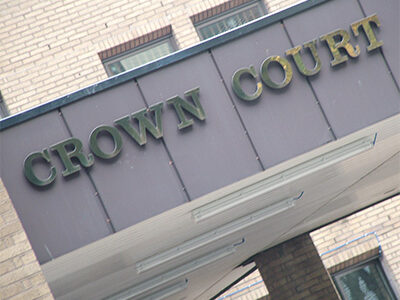Crown Court
What is the Crown Court?
The Crown Court deals with the most serious criminal offences. It is located in over 70 court centres across England and Wales, including the Central Criminal Court, more commonly known as the Old Bailey.
It deals with:
- cases sent for trial by Magistrates’ courts because the offences are ‘indictable only’ (i.e. those which can only be heard by the Crown Court because of the seriousness of the offence)
- ‘either way’ offences (which can be heard in a Magistrates’ court, but can also be sent to the Crown Court if the defendant chooses a jury trial)
- defendants convicted in Magistrates’ courts, but sent to the Crown Court for sentencing due to the seriousness of the offence
- appeals against decisions of Magistrates’ courts.

Almost all cases start in the Magistrates’ court. With ‘indictable only’ offences the defendant will be sent to the Crown Court for trial.
A defendant in an ‘either way’ case who chooses to plead not guilty can request a jury trial and, if they do, will be sent to the Crown Court. Even if they don’t request a jury trial, magistrates can decide to send them for trial in the Crown Court if the offence is serious enough.
If the defendant pleads guilty to a serious ‘either-way’ offence, magistrates can commit them to the Crown Court for sentencing.
Cases in the Crown Court are overseen by Circuit Judges or Recorders or, sometimes, for the most serious cases, High Court Judges. The Judge or Recorder sits with a jury of 12 members of the public. The jury decides whether the defendant is guilty. The judge is responsible for ensuring that the trial is conducted fairly, resolving any legal issues, giving the jury legal directions, and imposing sentence.
Appeals
The Crown Court deals mainly with appeals against conviction and/or sentence in respect of criminal offences dealt with in the Magistrates’ court, including orders such as disqualification from driving or Anti-Social Behaviour Orders. The Crown Court may dismiss or allow the appeal and vary all or any part of the sentence. Appeals are usually heard by a Circuit Judge sitting with no more than 4 magistrates (normally 2).
If you are the victim of a crime or a witness in a case, you can contact the Citizens Advice Witness Service (external link) for information and a chance to look round the court.
